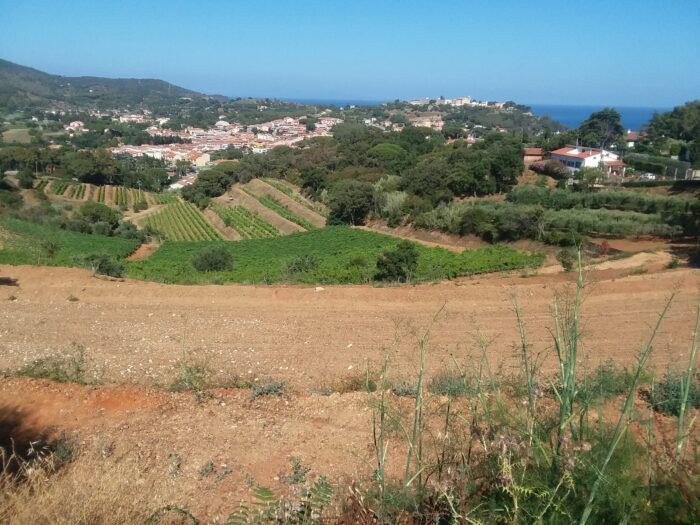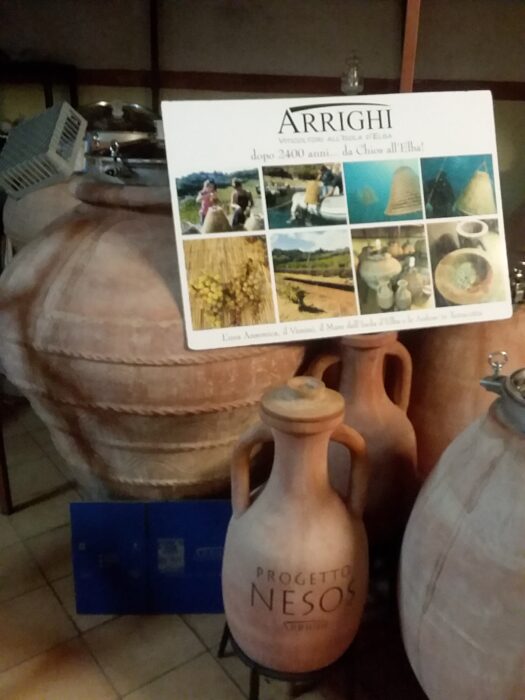Dr. Vadim Putzu, Religious Studies Associate Professor specializing in Judaism, is on sabbatical. Here he shares some of his experiences:

Since I am currently on the Isle of Elba (off the coast of Tuscany, Italy), I decided to follow a lead provided by our graduate student, Cody Yanez.
Last semester, Cody took my “Intoxicating Religions” course, which explores the roles of wine and beer in the history of civilizations with a special focus on Judaism, Christianity, and Islam. In one of the blog posts Cody was required to write for our class, he discussed current winemakers who are trying to recreate the wines ancient Greeks and Romans used to make, one of whom is in Elba. So yesterday I paid a visit to the Arrighi family (https://www.arrighivigneolivi.it), who has owned the vineyards you see in one of the pictures (attached), for about a century.

For over a decade, Mr. Antonio (with me in another picture) has been making both red and white wine much like the Romans did: fermenting the grapes and aging the wine in clay amphorae (see picture). In this sense, Arrighi is reviving an ancient local practice, since recent archeological excavations on the Isle of Elba uncovered a Roman villa (2nd century BCE – 1st century CE) with a cellar full of dolia (clay amphorae large enough to hold 400 gallons of liquid) used for the fermentation and storage of wine (https://www.infoelba.com/island-of-elba/places-to-see/historical-places/grotte-roman-villa/san-giovanni-archaeological-site/?_ga=2.96070748.1301010051.1624456489-1095676795.1624456489).

Over the past couple of years, Arrighi has been collaborating with the University of Milan to recreate the ancient wine of the Greek island of Chios, which was especially prized by Galen and Pliny (https://en.wikipedia.org/wiki/Chian_wine). The whole grapes are submerged in the sea for a few days in wooden baskets, and then sun dried before being pressed. The salt that penetrates into the grapes acts as an antioxidant and a disinfecting agent, so that other preservatives need not be added (https://www.arrighivigneolivi.it/vinomarino/). Ancient Greeks were known for adding saltwater to their wines, and likely engaged in practices similar to the ones described, so the idea is to re-enact those practices in order to learn why our ancestors developed them and with what results.
On a tasting note, I was unable to try the “sea wine” since it is currently only at the experimental stage, so I cannot attest to the effects of seawater on it! I was however surprised at the effects that making wine in amphorae does to the final product. The common assumption among historians is that ancient Greek and Roman wine was extremely unstable and could easily spoil because the vessels used for its fermentation and storage were not airtight. As it turns out, clay amphorae are more sanitary than wooden casks, keep the temperature extremely well – thereby allowing a controlled fermentation – and can be sealed quite effectively with beeswax. Bottom line: the wine I tasted that was made in amphorae has the same quality and flavors of “traditionally” made ones, so I got a couple of bottles to take home 
